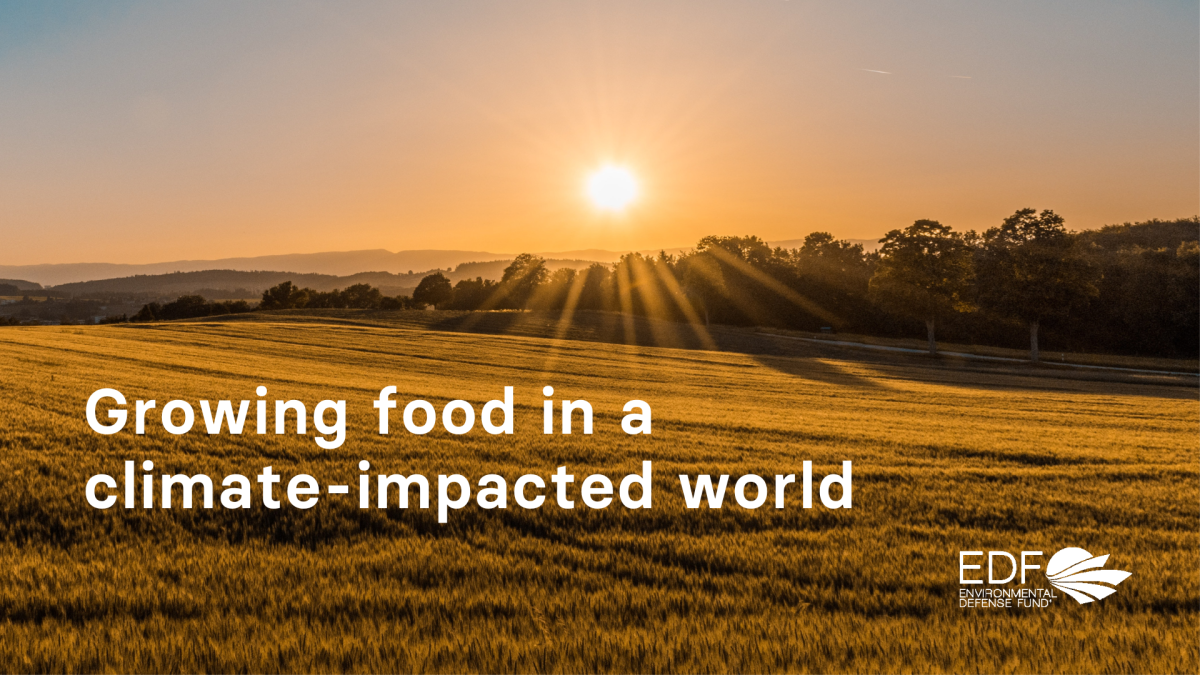About
Climate change is already affecting crop yields and overall farming and fishing productivity. In this session, global experts working at the intersection of agriculture, fisheries, climate change, and food security will discuss what these changes mean for producer livelihoods, food supplies and food security. While the challenges are steep, solutions exist. Drawing upon their experiences in research and global development, as well as their lived experiences, the panelists will explore how climate-resilient agriculture and fisheries can help to scale up adaptation, especially for vulnerable people in developing countries. With enough political will, we can make food systems more resilient to climate shocks, while creating economic opportunity for smallholder producers and rural communities.
This event is hosted by Environmental Defense Fund (EDF) as part of Climate Week NYC 2022.



